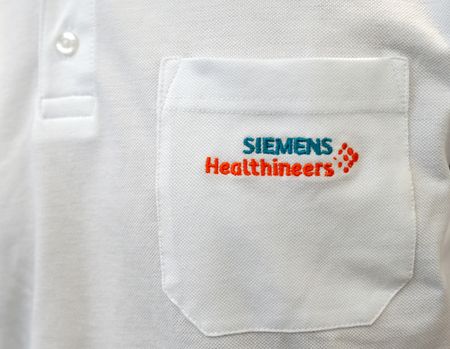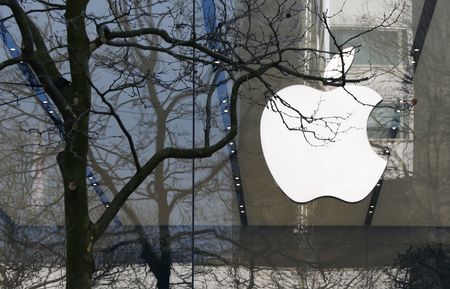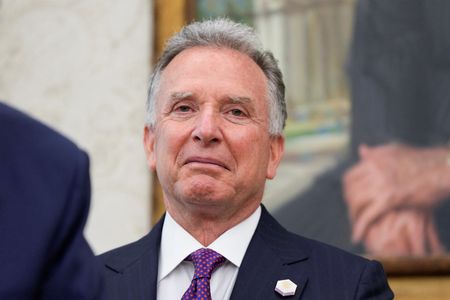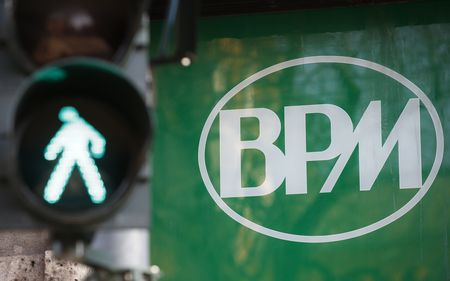By Marleen Kaesebier
(Reuters) -Siemens Healthineers expects to record a tariff hit of up to 300 million euros ($341 million) on its operating profit in the second half of 2025, the German medical technology group said after it posted a slight revenue beat on Wednesday.
The company follows its peers GE HealthCare and Philips which have also flagged annual tariff impacts in the millions of dollars and euros while cutting their forecasts for the year.
Siemens Healthineers said the net impact of tariffs on its adjusted earnings before interest and taxes (EBIT) would be between 200 million and 300 million euros in the second half. That translates to around 15 euro cents on its adjusted earnings per share, Chief Financial Officer Jochen Schmitz said.
While Siemens Healthineers confirmed its full year revenue outlook for comparable growth of 5% to 6%, it lowered the bottom of its forecast range for adjusted basic earnings per share, seeing it between 2.20 euros and 2.50 euros. The low end was previously at 2.35 euros.
“Without the current tariff environment, we would have discussed the achievability of the upper end of the guidance ranges for revenue growth and adjusted earnings per share,” CEO Bernd Montag said in a press call.
Talking about the tariff impact for 2026, Schmitz told analysts that in a “very conservative case” based on current assumptions, the company could see a hit double the 200-300 million euro one expected this year.
The company’s shares were 1.3% lower as of 0811 GMT, after rising around 2% in early trading.
Siemens Healthineers’ revenue was 5.91 billion euros ($6.70 billion) in the second quarter of its fiscal year, above the 5.80 billion euros expected by analysts polled by Vara Research. Adjusted operating profit also exceeded expectations with 19% year-on-year growth.
The broad beat was largely driven by revenue growth in the Imaging and Varian businesses, alongside cost reductions related to the transformation programme of the Diagnostics division, the company said.
($1 = 0.8799 euros)
(Reporting by Marleen Kaesebier in Gdansk and Alexander Huebner in Munich, Alexander (Reuters), editing by Milla Nissi-Prussak)










